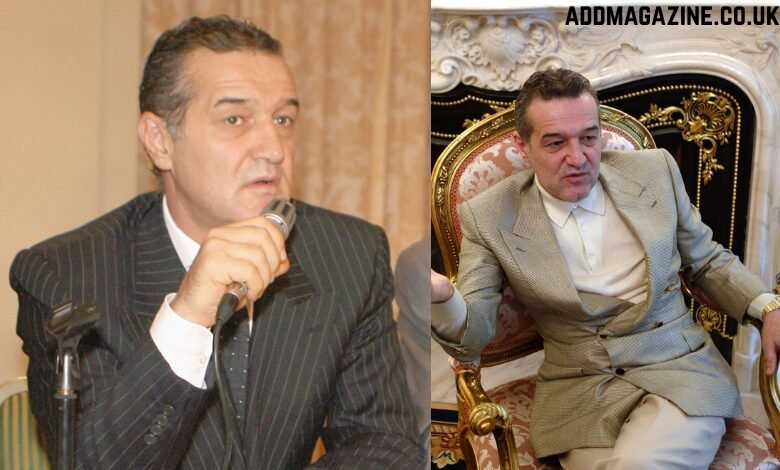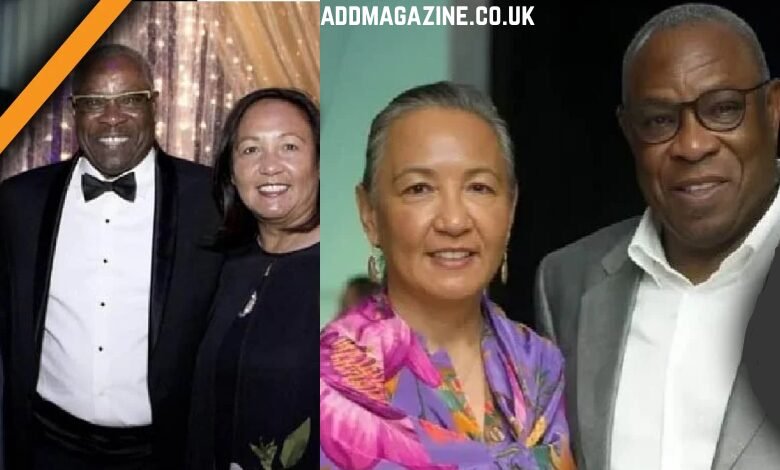George Becali, a name that resonates deeply within the modern Romanian cultural and political landscape, has been one of the most polarizing figures in the country. A businessman, football club owner, and former politician, Becali has become a household name, notorious for his controversial statements, vast fortune, and deep ties to Romanian nationalism. But behind the headlines and public controversies, who exactly is George Becali, and how did he rise to prominence in Romania?
Early Life and Background
Born in 1958 in Zagna, Braila County, George Becali grew up in a modest family with Aromanian roots. The Aromanians are a minority group in the Balkans, with a rich cultural heritage that Becali has often highlighted with pride. His upbringing was far from the luxuries that would later characterize his life. His family was not wealthy, and young George spent his early years working on the land, helping with shepherding, and taking part in agricultural work. George Becali early life was shaped by traditional rural values, hard work, and resilience, which would go on to influence his later career and public persona.
Becali’s rise to wealth is tied to the seismic shifts that occurred in Romania following the fall of communism in 1989. Like many individuals who emerged as powerful figures during the transition to a market economy, Becali capitalized on the opportunities that arose after the country embraced privatization. In the early 1990s, he began to invest heavily in land deals, particularly around Bucharest, which were to become highly lucrative. The values of these lands, often situated in rapidly growing areas, skyrocketed in the years following the end of communism, cementing Becali’s path to wealth.
Business Ventures: The Real Estate Mogul
While many Romanians first became aware of Becali through his ownership of the FCSB football club, his wealth primarily came from his real estate ventures. George Becali built his fortune by acquiring properties in the capital and surrounding areas, later selling them for substantial profits as urbanization and development boomed in Romania. His success as a real estate mogul earned him a reputation as a sharp and opportunistic businessman.
In Romania’s rapidly transitioning economy, Becali became one of the most well-known figures in the real estate sector, using his connections and knowledge of land value to strike deals that would propel him into the ranks of Romania’s elite. This real estate empire, alongside other business ventures, helped him amass a fortune, although some critics have raised questions about the means by which some of these deals were concluded, with accusations of improper business practices occasionally surfacing.
FCSB: A Football Icon
However, it is as the owner of FCSB (formerly known as Steaua Bucharest) that George Becali is perhaps best known in Romania and internationally. Becali took control of Steaua Bucharest in 2003, one of the country’s most successful football clubs. Under his ownership, the club enjoyed significant domestic success, regularly competing for league titles and achieving some notable performances in European competitions.
However, Becali’s ownership was marked by controversy. The club, once a symbol of Romanian football excellence, underwent a rebranding in 2017 when a legal dispute with the Romanian Army led to the club’s name change from Steaua Bucharest to FCSB. This legal battle over the ownership and identity of the club further heightened Becali’s polarizing status in Romanian public life.
Becali’s approach to managing FCSB was unconventional for a football club owner. Known for his brash and outspoken personality, he often made headlines with his public commentary on the club’s affairs, including decisions about team line-ups and management. His frequent interventions in the club’s tactical decisions, including his publicly stated views on player transfers and performance, earned him both admiration and criticism from fans, players, and pundits alike. Despite the controversy, FCSB continued to win league titles, solidifying Becali’s role as a dominant figure in Romanian football.
Political Ambitions: A Member of the European Parliament
Becali’s influence extended far beyond football and business. His foray into politics began in the early 2000s when he joined the New Generation Party (PNG). His political career took a significant step forward when he was elected as a Member of the European Parliament (MEP) in 2009, a role that allowed him to gain even more visibility on the international stage. As an MEP, Becali was a vocal advocate for Romanian nationalism, often making controversial remarks regarding Romania’s place within Europe and his views on various international issues.
During his time in politics, Becali maintained a staunchly nationalist and traditionalist stance, advocating for policies that resonated with a significant portion of Romania’s electorate. His rhetoric frequently revolved around the defense of Romania’s Orthodox Christian values and a call for a return to traditional family structures. While his political views garnered support from certain sections of Romanian society, they also led to significant criticism, especially from those who viewed his views as regressive and divisive.
Legal Troubles and Controversies
Becali’s career has not been without controversy, and his legal troubles have frequently been the subject of public scrutiny. One of the most significant legal issues he faced occurred in 2009 when he was sentenced to prison for his involvement in the kidnapping of individuals who allegedly stole one of his cars. The case, which was widely covered in the Romanian media, portrayed Becali as a man willing to go to extreme lengths to protect his property. He was sentenced to a prison term but served a reduced sentence and was released early.
Becali has also been the subject of several corruption investigations, including allegations of financial misconduct and bribery. These legal issues have contributed to his reputation as a controversial figure, with some viewing him as a symbol of the morally questionable practices that have plagued Romania’s post-communist transition.
In addition to his legal battles, Becali’s inflammatory public statements have drawn international criticism. His outspoken views on issues such as LGBT+ rights, minorities, and his endorsement of far-right nationalist ideals have further cemented his controversial image. Becali has made numerous statements that many consider to be bigoted or offensive, including remarks against the LGBT+ community, which have drawn widespread condemnation both in Romania and abroad.
Personal Beliefs and Nationalist Views
Becali’s political views, which lean heavily toward nationalism, are a central part of his public persona. He is a firm believer in the preservation of Romania’s traditional values, particularly those rooted in the Orthodox Christian faith. His political rhetoric often includes a strong sense of national pride, which he uses to rally support among Romanians who feel alienated by globalism and the European Union’s influence on the country.
Becali’s nationalism has been intertwined with his personal beliefs about family, religion, and the future of Romania. He is a vocal critic of what he sees as the moral decay of society and often champions conservative causes. His outspoken nature, particularly on social media and in public interviews, has made him a highly divisive figure. While some see him as a defender of Romanian identity, others view him as a relic of a bygone era, out of touch with modern values.
Charitable Work and Public Persona
Despite his controversial reputation, George Becali is also known for his charitable work, which has contributed to his public image in a complex way. He has made numerous high-profile donations, particularly in the form of financial support for churches, orphanages, and hospitals. He has also provided substantial aid to various causes, including funding for the construction of religious monuments and the care of impoverished individuals.
Becali has often positioned himself as a philanthropist, using his wealth to support causes that align with his deeply held Christian beliefs. His charitable donations, while praised by some, have also been criticized by those who question his motivations and the way in which he publicizes his contributions. Some critics argue that his philanthropic endeavors are more about building his own personal brand than about genuine concern for those in need.
Legacy and Impact on Romanian Society
As of today, George Becali remains a key figure in Romania, and his influence extends beyond business and football. His legacy is a complex one, defined by his immense wealth, controversial political views, and polarizing public persona. For some, he is a symbol of Romania’s post-communist transformation and a defender of traditional values. For others, he is an example of the excesses and moral shortcomings of the new elite in Romania.
Becali’s impact on Romanian football, his role in the country’s business scene, and his presence in political debates have all left an indelible mark on Romanian society. His ability to remain relevant, despite the numerous scandals and legal issues surrounding him, speaks to the power of his personality and the unique place he holds in the national consciousness.
While his controversial statements and legal troubles have earned him widespread criticism, George Becali’s influence cannot be dismissed. He is a figure who, for better or for worse, has shaped the modern narrative of Romania’s transition from communism to democracy, and he remains a subject of fascination for both supporters and detractors alike.
In conclusion, George Becali’s life is a reflection of Romania’s journey in the post-communist era. His rise to prominence, marked by bold business moves, football ownership, and his controversial political stances, has made him one of the most intriguing and divisive figures in modern Romanian history. Whether viewed as a symbol of success or excess, his place in Romania’s public life remains undeniable.
Conclusion
In conclusion, George Becali stands as one of Romania’s most polarizing figures, combining wealth, football success, and political ambition. His journey from a modest rural upbringing to becoming a prominent businessman and football mogul exemplifies Romania’s shift from communism to capitalism. While his outspoken nationalism and controversial actions have garnered both support and criticism, his influence on Romanian public life remains significant.
Despite the legal battles and public controversies, Becali’s position in Romania’s cultural and political landscape cannot be ignored. Whether celebrated for his philanthropy or condemned for his divisive views, his legacy continues to shape the national discourse, making him a central figure in the country’s modern history.




